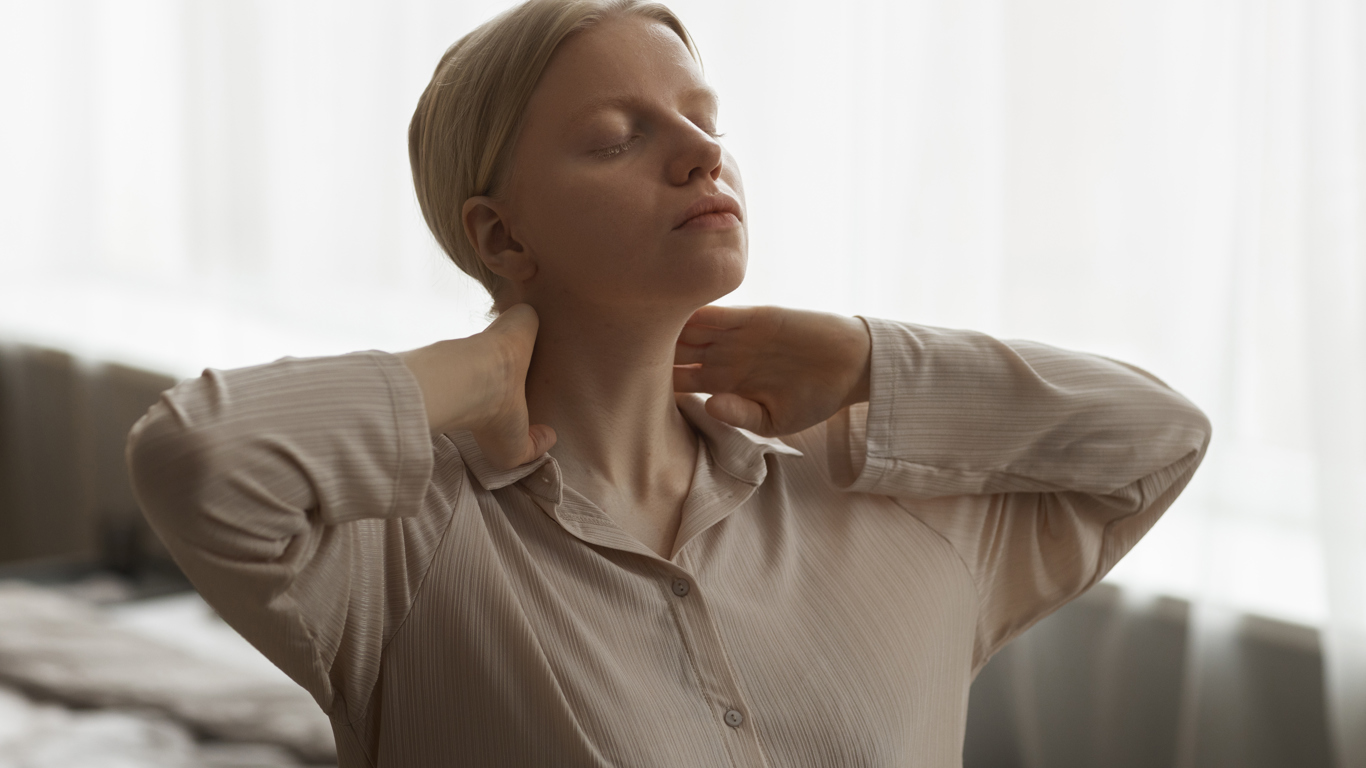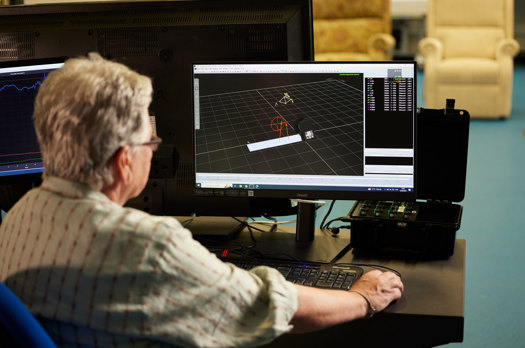How posture affects mobility and what you can do about it
Posture describes the way we position our bodies when we’re sitting, standing or moving. It’s something most of us take for granted, but posture is incredibly important. It plays a big role in our daily movement and comfort levels, as poor posture can lead to pain and discomfort.
Read on to find out how posture affects mobility and what you can do about it.
How Posture Affects Movement
Good posture helps our bodies to move freely by keeping our bones, joints and muscles in their optimal positions. When we have proper posture, the spine naturally curves in an S-shape, which helps to distribute weight evenly and reduces strain on any single area (such as your neck or lower back).
When you have poor posture, on the other hand, it can cause tension in your muscles, which can lead to pain and restricted movement. This can create a domino effect throughout your body. If you sit with your head jutting forwards (looking at your phone, for instance), then it can cause neck pain. That can lead to shoulder pain, which could cause upper back pain. That in turn could cause you to shift your pelvis or change how you walk to avoid the discomfort. The best way to think about it is to consider your body as one connected chain – and when one link is out of place, it can affect the entire chain.
How Bad Posture Affects Mobility
Poor posture can affect your mobility in a variety of ways – some of which may be surprising to you.
How an Orthopaedic Chair Can Improve Your Health
Slumped Posture
When we slump – particularly if we sit in a slumped posture frequently or for long periods of time – we often feel tightness in the lower back. Slouching puts unnecessary strain on your spine, affecting its natural curve and affecting the muscles that are responsible for bending and stretching. That means you might find yourself unable to bend or stretch as much as you used to be able to, leading to difficulties with simple tasks like picking up objects or reaching overhead.
Forward Head Posture
Many of us are guilty of looking down at our phone or tablet, rather than lifting it up to our face, but sticking our head too far forward like this can cause a lot of issues. This position strains the muscles at the back of your neck while weakening those in the front – and this can cause headaches, as well as making it more difficult to freely turn your neck, lift your shoulders, or rotate your back.
Rounded Shoulders
If we’re always hunched forward, it can make it hard to raise our arms or move freely. Walking, sitting or standing with hunched, rounded shoulders tightens the chest muscles while weakening upper back muscles, affecting everything from reaching overhead to maintaining balance.
Poor Sitting Habits
Whether it’s working at a desk, watching television, or getting engrossed in a good book, most of us spend a large portion of our days sitting down. That alone isn’t very good for your health, but sitting for long periods in the wrong position is even worse. Sitting with poor posture can stiffen your hips and legs, leading to tight hip flexors and weak glutes. That can make it harder to perform everyday activities like getting up from your chair or climbing stairs.

Posture and Aging: What Happens Over Time
Posture Changes as We Age
It’s natural to see some changes to our posture as we get older. That’s because muscles naturally weaken with age and our flexibility usually decreases. These changes can make everyday movements a little harder, such as standing up from a seated position or going up and down stairs. A loss in muscle mass, reduced bone density and decreased joint flexibility can also increase the risk of pain and even falls.
Maintaining Mobility as We Age
The good news is that taking small steps to improve your posture can really help to keep older adults moving while reducing discomfort. So, by working on your posture, you can give yourself a better chance of reducing pain and discomfort – which means that you can stay independent for longer, as well as improving balance and eliminating any discomfort associated with daily activities.
The Right Furniture Can Help
Sometimes, all it takes to help you sit and sleep better is the right chair or bed. Adjustable beds – like those available from HSL – allow you to raise or lower different sections of the bed to find the most comfortable and supportive position to suit your needs, whether you need to elevate your legs, ease pressure on your back, or reduce stiffness and soreness.
Our range of ergonomic chairs and sofas are designed to support your posture, with superior lumbar support, as well as targeted support for your neck, head and hips. That means that they make daily activities like watching TV, reading the newspaper, or simply sitting back and relaxing even more comfortable.
How Experts Can Help with Posture and Mobility
All of our chairs are occupational therapist approved by Julie Jennings Dip COT HCPC. She works with our Comfort Specialists to make sure that they understand how a chair should fit each individual, so when you shop with us, you can rest assured that you’re getting expert advice and furniture that suits your needs.
Dr. Andrea’s Research on Posture and Mobility
We’re proud to work with Dr Andrea Utley, a Reader in Motor Control and Learning in the School of Biomedical Sciences at the University of Leeds. She’s shown through her research how posture can directly impact mobility and overall health.


Final Thoughts
Your posture plays a huge role in how well you move and feel every day. By making a few simple changes – like using supportive furniture or doing simple strengthening exercises – you can greatly improve your posture and enjoy better mobility.
We offer a range of ergonomic chairs and furniture, all designed to support your journey toward better posture and better daily movement. Contact us today to find out more about how we can help, or to arrange a free home demonstration.
Sign up for our newsletter
Sign up for our newsletter to hear about our exciting new collections, interior trends, wellbeing advice as well as exclusive offers.



